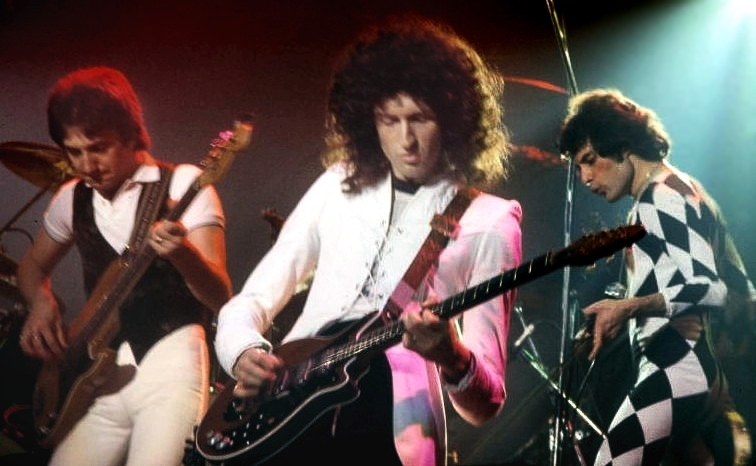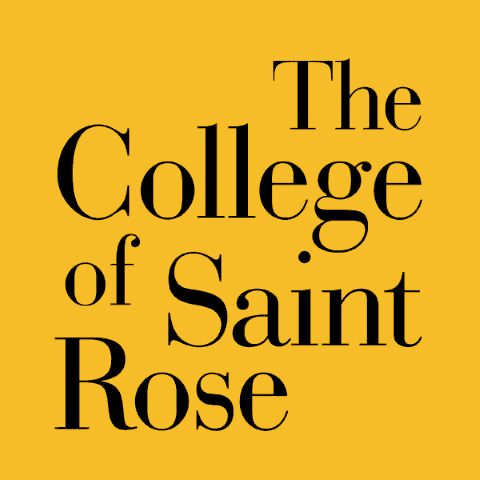
Few people were as happy about the release of “Bohemian Rhapsody,” the biopic chronicling the British rock band Queen and its singular lead singer Freddie Mercury, as Daniel Nester, associate professor of English at Saint Rose. Nester is such an enthusiast that he wrote two books on the band, “God Save My Queen: A Tribute,” and “God Save My Queen II: The Show Must Go On.” Here, he weighs in on the movie:
Queen, which has moved you to write not only essays but poetry, is always interesting to you. Why is the band interesting to other people today – more than 30 years after the original band last performed and 27 years after the death of lead singer Freddie Mercury?
I think it’s because the music is great, first and foremost. The band’s music has aged really well and has only gotten more popular. I think that’s because of the ways we listen to and discover music has changed dramatically. We’re in a world of streaming music, YouTube parodies, memes, and mashups and remixes, where genres and subgenres intermix.
Queen’s music fits in that context perfectly. They’ve done heavy metal, opera, rockabilly, gospel, disco. To the new generations of fans, this makes sense. Queen’s music is still ahead of its time.
There are a lot of erstwhile bands a movie could be made about. Why Queen?
It’s not the story of a typical rock band. You’ve got four college graduates, four nerds. When Queen started, guitarist Brian May was working on his doctorate in astrophysics. Drummer Roger Taylor was on his way to being a dentist, and bassist John Deacon was going to be an engineer. But most atypically of all, you’ve got a lead singer, Farrokh Bulsara, born into a Parsi Indian family in Zanzibar, who came to London when he was 17, goes to art college, grows his hair out, plays in a few bands, and renames himself Freddie Mercury. He was mysterious and kept it that way. He lived as a gay man when doing so was not only career suicide but also could get you arrested in England. “Bohemian Rhapsody” focuses on his story, and it’s fascinating to see how his story and the various myths mix.
There are a lot of bands you could have written about. Why Queen?
It’s an obsession for me, that’s for sure. No denying that. It might even be some sort of addiction — I collect records, posters, all sorts of Queen memorabilia. More than that, as a writer, I’m interested in how people live and think as fans, how culture and obsessions live in our heads. In a lot of ways, it’s grown to be more accepted in recent years, with things like Comic Cons growing so popular, and cosplaying and fan fiction going mainstream. In my books, I wrote a short poetic riff or essay to accompany each song by Queen, and it was my way of organizing my obsessive thoughts.
What do you think of the decisions the movie made on what to include and emphasize and what to spend less time on?
I was glad it wasn’t a “hetwash,” which was a criticism when the movie’s trailer first appeared. It’s a complicated story since Mary Austin, his former girlfriend, was an important person in his life until the end, while Freddie lived his life as a gay man. I think they could have had more decadent parties, but for a PG-13 rating, they kept that off-screen.
Plenty of film critics pointed out inaccuracies. What are they, and does it matter?
You’ve got two things going on with the bad reviews. One is that critics always hated Queen, especially American critics. Rolling Stone never got their campy sense of humor. They never liked the music itself because it was popular and wasn’t Bruce Springsteen. The second is that it’s not a documentary. I could spot just about every historical error, if you want to call them that. All filmmakers compress events, skip over others, reshuffle timelines. I know lots of Queen fans who have issues, but I had no problem with any of it. The main point is to tell Freddie Mercury’s story, and due to that, you have to compress a 15-year period into two hours. Not incidentally, similar topics come up when I teach creative nonfiction, where it’s about emotional truth and memory, as opposed to being objective and journalistic.
The movie went beyond the music and musicians to discuss the struggles of closeted gay people in the 1970s and, of course, AIDS. How well did it handle those topics?
I think it got Freddie’s struggle with his own sexuality. I am not sure how today’s audiences will get it was this really big thing to come out of the closet, how it was illegal in England, and career suicide in general. As far as AIDS, it’s heavy-handed and dramatic because it’s a Hollywood movie. Lots of protests have been made about the revelation of Freddie’s diagnoses earlier than it did in real life. But among Queen scholars — and I suppose I’m one of them — there is some debate regarding when Freddie really knew.
Final question: What the heck is “Bohemian Rhapsody” (the song) actually saying?
When I first heard the song when I was, like, 9 years old, I was convinced it was about me. Nowadays, I have no freaking clue.
Read Nester’s review of the movie here.




Comments posted on this site are held in moderation until approved by a site administrator. Vulgar, profane, obscene, offensive terms or personal attacks will not be tolerated.